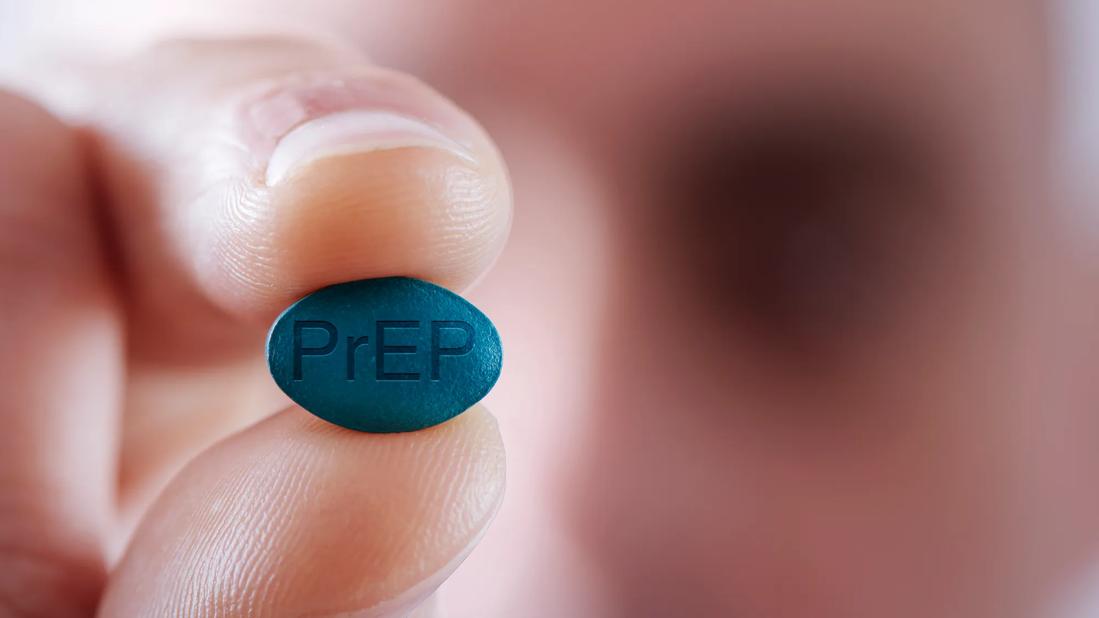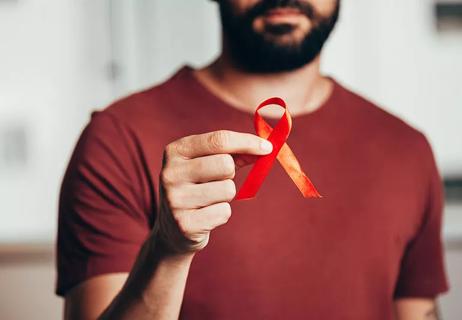Like the flu shot or the HPV vaccine, PrEP is a preventive medicine designed to protect your health

Risk assessment is a huge part of living. Every day, we make decisions to help protect ourselves from illness and prolong our health. We get the flu shot to help reduce our risk of getting influenza. We take birth control to help prevent unplanned pregnancies. And now, we can take pre-exposure prophylaxis, or PrEP, to help protect ourselves from HIV infection.
Advertisement
Cleveland Clinic is a non-profit academic medical center. Advertising on our site helps support our mission. We do not endorse non-Cleveland Clinic products or services. Policy
But PrEP is a relatively new medicine, so there are many questions about who should take it, how it works and how it affects your body. Internal medicine specialist James Hekman, MD, answers those questions and explains why PrEP is really meant for anyone who currently doesn’t have HIV and is at higher risk for infection.
PrEP is a preventive medicine that blocks the HIV virus from taking hold within your body. There are currently two forms of daily oral medications for PrEP and one long-acting injectable form of PrEP:
Advertisement
The human immunodeficiency virus, or HIV, is a sexually transmitted infection (STI) that attacks your immune system, which can make it difficult for your body to fight off illness. HIV enters your body through broken skin (like a cut or open wound), your anus, penis or vagina. The infection itself is carried by these body fluids:
Globally, 44% of all new HIV infections in 2023 were among women and girls of all ages. Anyone can get an HIV infection at any age. But some groups, including people of color and men who have sex with men, are disproportionately affected.
For these reasons, PrEP can be a useful tool in preventing the spread of HIV before anyone is ever even exposed to it.
“PrEP is presently being offered to many people in many individual circumstances,” shares Dr. Hekman. “Anyone who has a greater than average chance of acquiring HIV due to sexual contact or IV drug use should consider speaking with their doctor about a prescription for PrEP.”
Anyone who doesn’t have HIV can be on PrEP. If you’re curious or interested in using PrEP as a preventive medication, talk to your primary care doctor or see a healthcare provider. They can answer any questions you have about the medication.
They may recommend you go on PrEP if you:
“Several new HIV infections have been acquired in relationships that were thought to be monogamous, so being in a relationship does not exclude someone from considering PrEP,” clarifies Dr. Hekman. “If you think you may be at risk, please contact your provider for additional discussion.”
Before you can begin PrEP, your healthcare provider will have you take an HIV test. If you test negative, that means you likely don’t have HIV and can begin taking PrEP as a preventive medicine.
You should be on PrEP for one week, in most cases, in order for it to start working. For receptive vaginal sex and injection drug use, PrEP pills reach maximum protection at about 21 days of use. To maximize your protection from HIV, you have to be sure to take every dose. Simply put, Dr. Hekman says, “PrEP is incredibly effective, but only if you take it as prescribed.”
HIV.gov reports that when taken correctly, the pill forms of PrEP reduce the risk of getting HIV from sex by about 99%. And it reduces the risk of getting HIV from injection substance use by at least 74%. But the medication isn’t nearly as effective if it isn’t taken consistently, so be sure to set those daily reminders.
Advertisement
As part of the requirement for taking PrEP, you’ll need to get tested for HIV:
PrEP is considered safe, but you may experience some side effects at first. They should go away on their own, but talk to your healthcare provider if you continue experiencing these symptoms:
If you have kidney disease or a history of hepatitis B, be sure to tell your provider. It may impact whether you’re able to take PrEP.
“PrEP does not prevent the spread of other STIs,” Dr. Hekman states. “It only prevents the spread of HIV.”
You can (and should) pair PrEP with condom use for the best chances of reducing your risk for any STIs. Embracing safer sex practices can also be helpful when preventing STIs.
PrEP is a pre-exposure medication, which means that in order for it to do its job, you need to be taking it before you’re exposed to HIV. That also means PrEP isn’t the right medication to take if you’ve been exposed to HIV and want to reduce your chance of infection.
If you’ve been exposed to HIV and aren’t already on PrEP, see a doctor — whether your primary care physician or at an emergency room or urgent care facility — within 72 hours. They can prescribe post-exposure prophylaxis (PEP), medication to prevent HIV after exposure. Unlike PrEP, PEP is used in emergency exposure situations.
Advertisement
PrEP is only available by prescription, so if you’re interested in starting it, make an appointment to speak with a healthcare provider. If you’re concerned about how to pay for PrEP, be sure to ask your doctor about that, too. Most insurance companies and state Medicare plans cover PrEP, and other options are available for those who qualify.
Advertisement
Learn more about our editorial process.
Advertisement

Knowing the truth can help erase the stigma

Yes, but symptoms can be easy to miss

‘Walking pneumonia’ is milder and doesn’t always require medication — but it’s also highly contagious

The little blue pill might help with physical arousal, but there are better treatments for low libido in women

Start having sex about 72 hours before ovulation, then at least every other day during your fertile window

The Yuzpe regimen is less effective than other forms of emergency contraceptives, and it’s associated with more side effects

Arousal without orgasm can be uncomfortable, but it’s no reason to pressure sexual interactions

From washing your hands and disinfecting surfaces to boosting your immune health, there are many ways to reduce your flu risk

Wearing a scarf, adjusting your outdoor activities and following your asthma treatment plan can help limit breathing problems

Your diet in the weeks, days and hours ahead of your race can power you to the finish line

When someone guilt trips you, they’re using emotionally manipulative behavior to try to get you to act a certain way